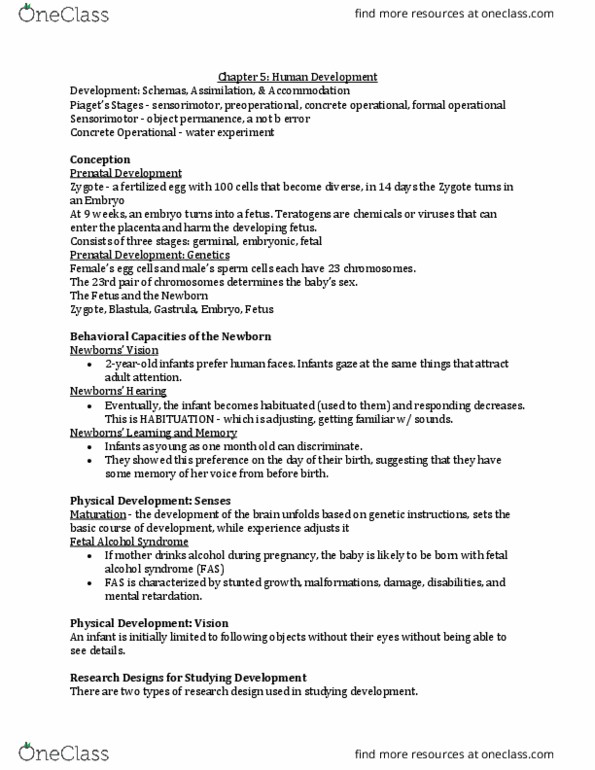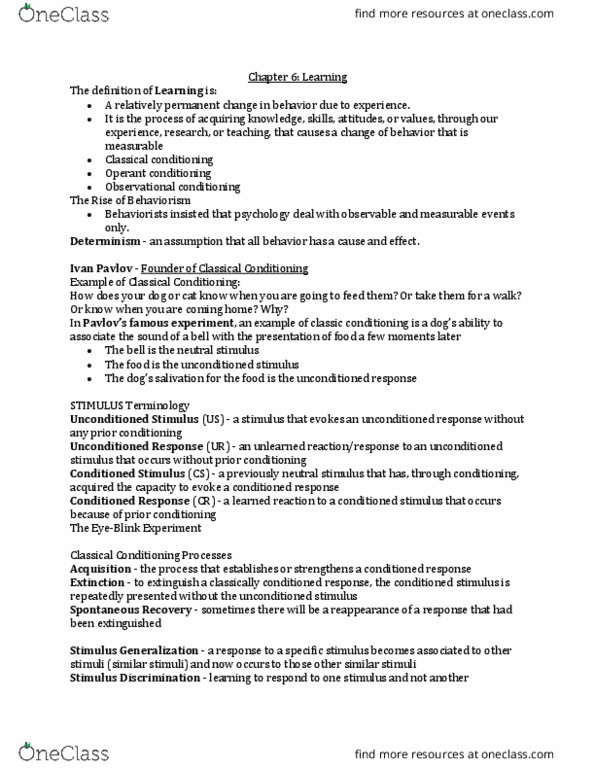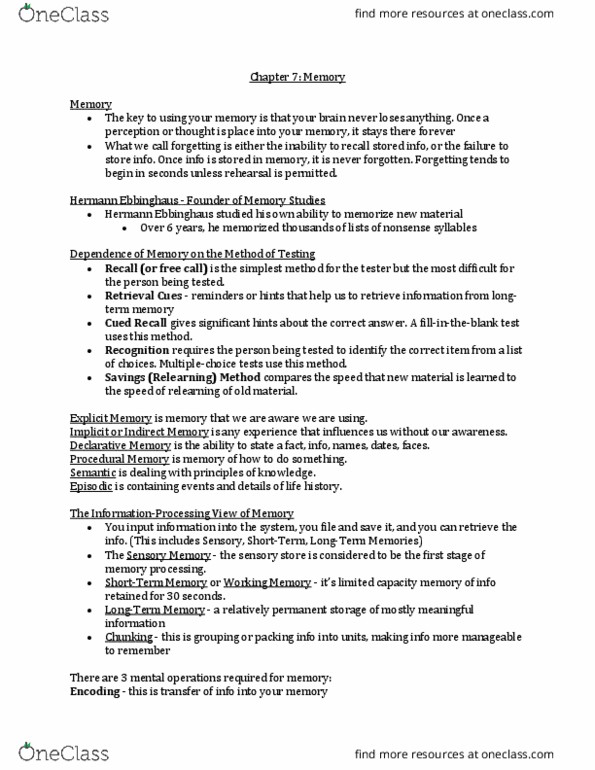01:830:101 Lecture Notes - Lecture 6: Discrimination Learning, Classical Conditioning, Behaviorism
01:830:101 verified notes
6/29View all

Chapter 6: Learning
The definition of Learning is:
• A relatively permanent change in behavior due to experience.
• It is the process of acquiring knowledge, skills, attitudes, or values, through our
experience, research, or teaching, that causes a change of behavior that is
measurable
• Classical conditioning
• Operant conditioning
• Observational conditioning
The Rise of Behaviorism
• Behaviorists insisted that psychology deal with observable and measurable events
only.
Determinism - an assumption that all behavior has a cause and effect.
Ivan Pavlov - Founder of Classical Conditioning
Example of Classical Conditioning:
How does your dog or cat know when you are going to feed them? Or take them for a walk?
Or know when you are coming home? Why?
In Pavlov’s famous experiment, an example of classic conditioning is a dog’s ability to
associate the sound of a bell with the presentation of food a few moments later
• The bell is the neutral stimulus
• The food is the unconditioned stimulus
• The dog’s salivation for the food is the unconditioned response
STIMULUS Terminology
Unconditioned Stimulus (US) - a stimulus that evokes an unconditioned response without
any prior conditioning
Unconditioned Response (UR) - an unlearned reaction/response to an unconditioned
stimulus that occurs without prior conditioning
Conditioned Stimulus (CS) - a previously neutral stimulus that has, through conditioning,
acquired the capacity to evoke a conditioned response
Conditioned Response (CR) - a learned reaction to a conditioned stimulus that occurs
because of prior conditioning
The Eye-Blink Experiment
Classical Conditioning Processes
Acquisition - the process that establishes or strengthens a conditioned response
Extinction - to extinguish a classically conditioned response, the conditioned stimulus is
repeatedly presented without the unconditioned stimulus
Spontaneous Recovery - sometimes there will be a reappearance of a response that had
been extinguished
Stimulus Generalization - a response to a specific stimulus becomes associated to other
stimuli (similar stimuli) and now occurs to those other similar stimuli
Stimulus Discrimination - learning to respond to one stimulus and not another
Document Summary
Chapter 6: learning: a relatively permanent change in behavior due to experience. It is the process of acquiring knowledge, skills, attitudes, or values, through our experience, research, or teaching, that causes a change of behavior that is measurable: classical conditioning, operant conditioning, observational conditioning. The rise of behaviorism: behaviorists insisted that psychology deal with observable and measurable events only. In pavlov"s famous experiment, an example of classic conditioning is a dog"s ability to: the dog"s salivation for the food is the unconditioned response. Unconditioned stimulus (us) - a stimulus that evokes an unconditioned response without any prior conditioning. Unconditioned response (ur) - an unlearned reaction/response to an unconditioned stimulus that occurs without prior conditioning. Conditioned stimulus (cs) - a previously neutral stimulus that has, through conditioning, acquired the capacity to evoke a conditioned response. Conditioned response (cr) - a learned reaction to a conditioned stimulus that occurs because of prior conditioning.




